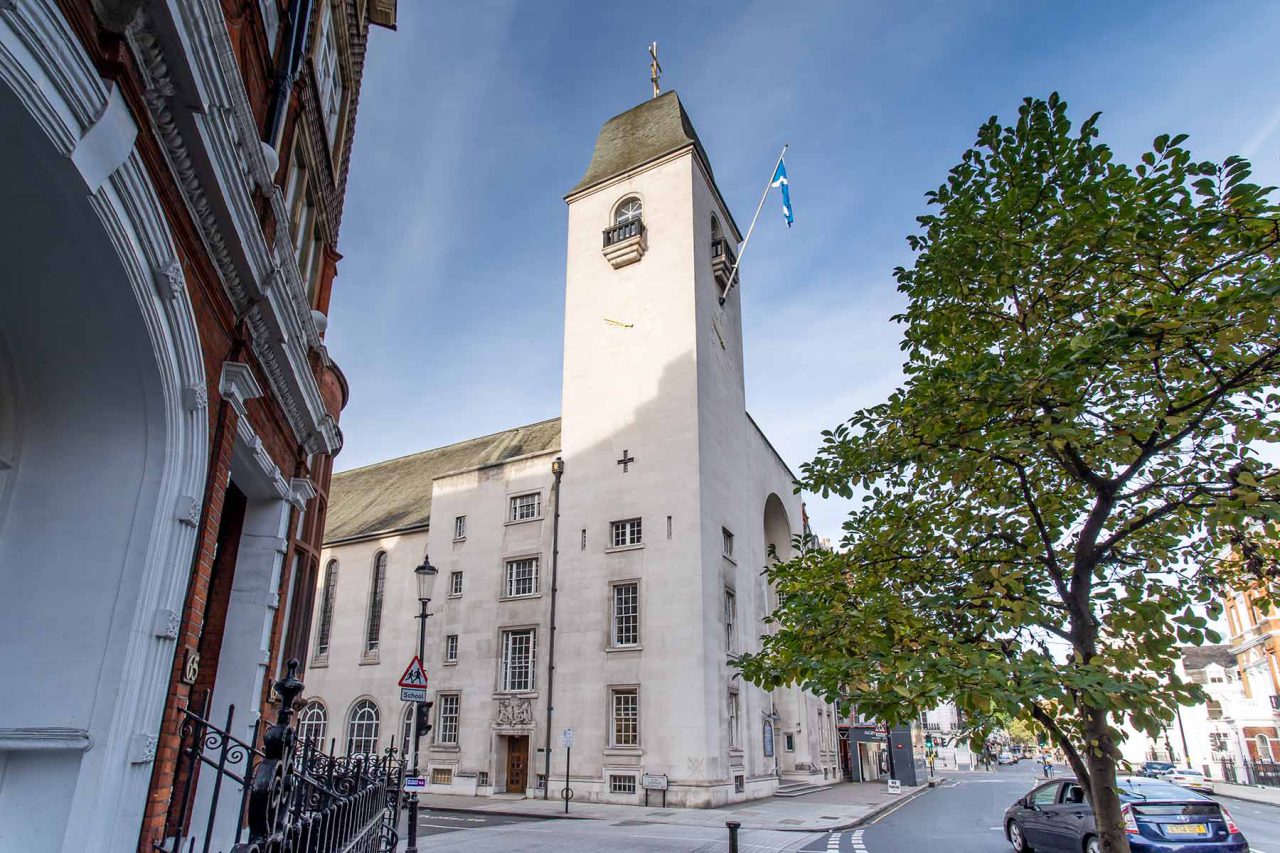Sermon 7th September 2025
“Whoever comes to me and does not hate father and mother, wife and children,
brothers and sisters, yes, and even life itself, cannot be my disciple.” Luke 14
On the day that we celebrate Lachlan’s baptism,
the allotted Gospel reading apparently declares war on family harmony.
To which you might ask: Really?
Is this the message on a day of beginning that best represents our faith?
Many years ago, a wise Roman Catholic nun confessed to me
that as a teenager, her mother had found the piece of paper
on which the daughter had written – repeatedly:
“I hate my mother! I hate my mother! I hate my mother!”
She didn’t of course; and her mother knew it.
But sometimes exaggeration is the thing.
So, to the customs and context of today’s alarming declaration.
Journeying to Jerusalem, Jesus now has something of a circus in tow –
large crowds are now follow in his wake.
Among them the committed, the curious, the critical,
the day-trippers, the what’s the latest trend hangers-on.
It is to this audience he unleashes his uncompromising words:
(versions of which occur five times in the gospels):
“If you’re not willing to take what is dearest to you,
whether plans or people, and kiss it good-bye,
you can’t be my disciple.” (The Message)
Jesus does not mean we should treat our families with antipathy or aversion.
Family, is not only a legitimate concern,
but often the source of great love and joy.
Hating parents, spouses, siblings and children is hyperbole,
to express a different truth –
authentic discipleship, may/will demand
renunciation of other priorities –
even good ones –
family, work, career,
sport, hobby, possessions, money,
club, country, tradition, even religion –
if it is distracting from the things of God.
Jesus’s calls for an allegiance above all these:
His meaning, not so much – hate the family –
But – love God most.
It is a big ask.
Jesus knows it’s hard, so he advises his listeners to stop and count the costs.
A careful builder, never breaks ground
without taking a good, hard look at his/her budget.
A wise general doesn’t declare war
unless he’s sure his troops are equipped and battle-ready.
Discipleship, Jesus warns, is not a weekend hobby or a holiday destination.
It is a is reordering of identities and priorities.
A “hating” of that which is too narrow, too exclusive;
a loyalty to that which is broad, inclusive, boundless.
“Whoever does not carry the cross and follow me cannot be my disciple.”
Discipleship is costly.
In parts of the world being a follower of Jesus comes with costs.
Brutal costs.
Mercifully we do not come to church under threat of violence or persecution.
But speaking out through conscience or engaging in contemporary issues
because of the demands of the gospel demands a price.
As one observer commented:
“When you invite homeless people into a respectable church,
or advocate that asylum seekers are people with the same rights as the rest of us,
or march for peace against the drum beat of war,
regardless of the cost,
Christians will not be automatically admired or applauded.
There will be accusations of irresponsibility,
a failure to honour certain precious things –
like honour and dignity, tradition, family, church and country;
The competing loyalties that Jesus warned about.”
“Whoever comes to me and does not hate father and mother, wife and children, brothers and sisters, yes, and even life itself, cannot be my disciple.”
Jesus surveys the large crowds along for the ride:
“Go big or go home. Are you all in?
Because you will need to be, if you’re coming all the way.”
When we hear Jesus words that seem particularly harsh, uncomfortable,
it is worth remembering that his intention is always loving.
If he is critical, it is because he knows a better way.
Discipleship is costly – but so too is non-discipleship.
To not follow also comes at cost –
a kind of loss, a life half-lived.
In the phrase of a character from an Anne Tyler novel: The Amateur Marriage,
Michael Anton lived no major dramas but retained a sense of regret:
“He wished he had inhabited more of his life, used it better, filled it fuller.”
Jesus’ call to following him is the invitation to push out into deeper water –
not necessarily knowing where it will lead,
but given the promise that it will always be in the company of Christ.
Luke emphasizes what is gained:
“There is no one who has left house or wife or brothers or parents or children, for the sake of the kingdom of God,
who will not get back very much more in this age,
and in the age to come eternal life.” (Luke 18:29-30)
If it is encouragement to persevere is required,
or discernment of what is ultimately of worth,
and perhaps as partial redress to “hate your family” on this baptismal day –
let me finish with words received this week –
delivered in the lyrics of a song,
Entitled, “Love behind it all.”.
Composed by a father, written for his daughter, now away from home.
It references childhood days:
Listening for a baby’s cry through the night.
Or teaching the child to ride a bike – arms out catch a fall.
All those petty rules
the don’t be lates for school
The tidy up your room
when your homework is done
That drove us both up the wall.
But there was love behind it all.
And at its conclusion:
And they say you’ll love me,
then you’ll judge me,
and maybe you’ll forgive me.
So I live in hope that one day you’ll recall
that it was love behind it all.
Parenting love a small echo of the Divine Parental Love,
Jesus words: One day I hope you’ll recall that it was love behind it all.
Sermon 14th September 2025
“Rejoice with me, for I have found the sheep that was lost.
Rejoice with me, for I have found the coin that was lost.” Luke 15
A good many years ago we baptised a young girl at St Columba’s.
She was old enough to be part of the discussions
that we have before a baptismal day.
Her circumstances were a little different. She was an adopted child.
While talking with the child and her mother, I asked the girl:
“What is the best thing about family life?”
Her reply, addressing her mother: “That you found me.”
Lost and found is at the heart of today’s gospel:
Once again, (as Luke tells it)
Jesus is in trouble for hanging out with the wrong crowd;
in the eyes of respectable religious society – the deplorables.
Worse still, breaking bread together.
So, while some grumbling stomachs are being filled,
other grumbling minds are left discontent – a muttered chorus of legalism.
The “sinners,” needless to say, are fascinated by this unexpected welcome.
Their delight/incredulity, matched by Pharisee indignation.
In response, Jesus tells the guardians of religion two parables.
A shepherd leaves his flock of ninety-nine
to look for a single lamb that is lost.
He searches until he finds it, and when he does,
he carries that one lamb home on his shoulders,
Leaving the ninety nine in the wilderness?
Intent only on holding a party in celebration
of the one who had wandered off.
Not so much amazing grace as ridiculous shepherding.
No way to keep a flock; utterly irresponsible.
No bother: This shepherd just wants to celebrate.
“Come rejoice with me, neighbours, look who I’ve found.”
In the second, a woman loses one of her ten silver coins.
Immediately, she lights a lamp and sweeps her entire house,
Searching every dusty nook and cob-webbed cranny,
until she finds it.
Then, like the shepherd, she calls the community to celebrate:
“Rejoice with me, for I have found the coin that I had lost.”
A nun who I used to visit regularly
would always answer her apartment doorbell ring with:
“Come in, come in. Welcome and rejoice!”
Before you would then hear the click of the building’s front door latch.
Welcome and rejoice. Rejoice, says the shepherd. Rejoice says the homemaker.
The beauty of parables – their durability –
is surely because as stories
they will not be constrained by single explanation –
like a mathematical formula.
Parables shift in significance and understanding,
as we hear them at different stages of life and circumstance.
So, it is quite possible to hear these parables as promise of mercy;
or challenge to hard-heartedness. Or both.
Who are the lost sheep? Who comes to mind?
Rough sleeper, the addict not yet in recovery,
the reckless teenager, the embittered neighbour?
Maybe – but what about us –
members of a well-established Christian congregation,
with a history of which we are proud?
According to the parables,
being lost happens to the “faithful”.
The sheep that goes astray is already part of the flock;
the tenth coin was already precious to the woman.
These tales are not about lost outsiders finding salvation and joining the flock.
They are about the already-believers who lose their way.
There are many forms of lostness and many causes –
sometimes through poor choices, of course,
but sometimes through circumstances beyond our making.
A serious illness, a premature death;
a redundancy or a relationship dies;
children go off the rails;
an addiction or despair finds a stranglehold.
Things can go either way:
for some it is the moment that they lean most heavily –
perhaps for the first time – on their faith.
The belief that God holds them still – even in the dark.
For others – the faith they thought was there,
secure for so many years – turns to ash.
Scripture, prayer, worship, belief dries up –
while the Almighty goes AWOL.
To which these parables might remind:
Being lost is not blasphemous;
it is part and parcel of the life of faith.
[“Lostness is not a blasphemous aberration;
it’s part and parcel of the life of faith.” (Debie Thomas, Journey with Jesus, Sep 19)]
Being lost happens to God’s people – good people.
Being lost reminds us of our humanity – frail, vulnerable, precious.
And being lost reminds us, who God is.
The lost and found parables are portraits,
both of the life and priorities Jesus embodied,
and of the nature of God.
God who searches; perseveres, over hill and dale,
looking, looking, looking – until we are found.
God the determined, dogged finder.
God who turns the house upside down,
until she discovers the glimmer of silver in the out of sight place.
“I myself will search for my sheep and will seek them out.” Ezekiel 34:11
Then, marks such moments of rediscovery with rejoicing;
unnecessary parties and fatted calf feasts.
Where the angels high five.
I hope – if that is what is most needed today –
you can hear the mercy and welcome in those parables.
That stories of being found can strengthen or reassure you for the week ahead.
On any given Sunday, there will be some among us who need that.
But are we prepared to also hear the challenge in these parables?
The jab of their telling to the original target audience?
The Pharisees: God-fearing devoted disciples,
who do not merely talk about faith but try to live it.
They are not uninterested in sinners;
They just believe the best way to help them
is to exemplify a high standard, inviting others to emulate that.
Some will have what it takes – others not.
Rules/lines are clear.
Yes, there are winners and losers – and each knows who they are.
That’s just the way life is.
Repentance requires confession
and resolve to not act the same way again.
The problem is – Jesus’ parable messes up those formulas,
proving problematic for the religiously good,
for those already in the fold.
In the story, neither the sheep or the coin exhibit any sense of repentance.
They are simply found; restored because of God’s action, not theirs.
Isn’t Jesus condoning bad behaviour,
robbing unfortunates of motivation to do better?
Why should they buy what the Pharisees are offering,
If he’s giving it away free?
As we were reminded at Presbytery yesterday: Trappist monk, Thomas Merton
“Our job is to love others
without stopping to inquire whether or not they are worthy.”
The Shepherd, and those he calls disciples, continue to search and continue to find.
That is both promise and commission.
An invitation to join Jesus in the great round-up;
recoverers of precious treasure; discoverers of the joy of finding.


